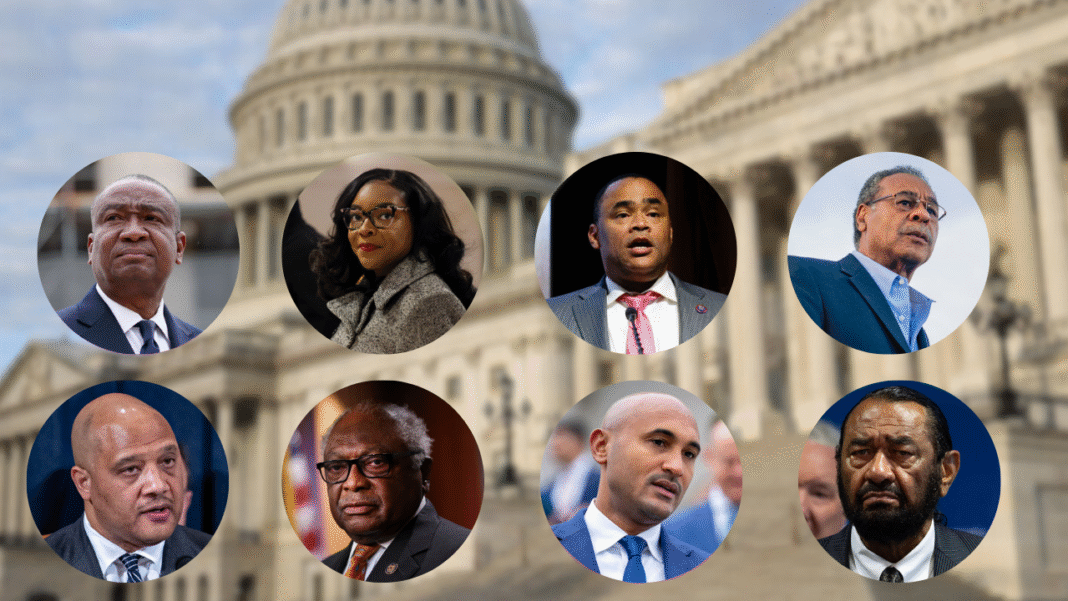The Escalation of Voting Rights Battles in America
A modern-day fight for voting rights is intensifying across the United States, particularly in states where Republican-led initiatives aim to redraw congressional maps. These efforts seek to target Black and Latino voters as part of a strategy to maintain Donald Trump’s foothold in Congress by 2027. Alarmingly, if successful, these changes could lead to several Black members of Congress losing their seats.
Redistricting and Its Implications
In recent actions, Texas Republicans, responding to Trump’s call for additional congressional seats, drafted a new electoral map. This move is noteworthy because redistricting is ordinarily tied to population counts every decade, with the last Census occurring in 2020. The proposed map deliberately dilutes the voting power of Black and Latino constituents—groups that traditionally lean Democratic—by splitting these demographics across multiple districts, thus favoring Republican outcomes.
The new Texas map notably dismantles the 9th Congressional District held by Rep. Al Green and the 33rd Congressional District represented by Rep. Marc Veasey. Both are Black Democrats who now face the daunting prospect of running in different districts to retain their positions in Congress.
Legal Challenges and the Voting Rights Act
Following the enactment of the new map, several lawsuits have been filed on behalf of Black and Latino voters. These lawsuits accuse the state of racial gerrymandering in violation of the Voting Rights Act of 1965. This series of legislative moves is not an isolated incident; other states are expected to follow suit as Republicans work to help Trump retain control ahead of the significant midterm elections in 2026.
Marcus W. Robinson, a senior spokesperson for the Democratic National Committee, expressed concern about these deliberate tactics. He stated, “These are targeted efforts to push people of color out of power,” pointing out that when Republicans cannot secure victories through fair election practices, they resort to manipulating the system.
A Nationwide Strategy
The issue of gerrymandering extends beyond Texas. In Missouri, for instance, similar redistricting efforts have targeted the district of Rep. Emanuel Cleaver, a prominent Black Democrat from Kansas City. Ohio is also seeing attempts to reshape the 13th Congressional District represented by Rep. Emilia Sykes, whose constituency, unlike others in the Congressional Black Caucus, is majority white.
Additionally, Vice President JD Vance recently met with Republican lawmakers in Indiana to advocate for redistricting measures that could threaten the position of Rep. Andre Carson, Indiana’s only Black congressional representative. This wave of redistricting poses a wide-reaching threat to representation for Black lawmakers across the nation.
The Fight Back
In states like Alabama and Louisiana, Republican legislators are reportedly working to dismantle “opportunity districts,” which are designed to ensure better representation for Black voters. Such efforts put the seats of newly elected representatives, such as Shomari Figures from Alabama and Cleo Fields from Louisiana, in jeopardy. For these representatives to remain in Congress, they may have to run against their fellow Black colleagues, raising the stakes for these elections further.
Even veteran Congressman Jim Clyburn from South Carolina has not been spared, as GOP candidates push for map redraws aimed at diminishing his influence.
In response to these mounting threats, the Congressional Black Caucus (CBC) held a press conference where they reiterated their commitment to fight against these legislative changes. Rep. Yvette Clarke of New York, CBC chairwoman, said, “The Republican Party led by Donald Trump is systematically working to rig the upcoming election.” Her words highlighted a clear strategy to dilute the voting power of minority communities, a tactic she vowed to resist fiercely.
The Role of the CBC
Political analysts have noted that the CBC, seen as the conscience of Congress, forms a powerful voting bloc that poses a significant challenge to Trump and the GOP. Reecie Colbert, a prominent political commentator, noted that the Congressional Black Caucus is not beholden to the so-called “white working-class voter,” emphasizing its influence in Congress.
Colbert further elaborated on Trump’s apparent disregard for Black political leadership, suggesting that his actions reflect a deeper animus towards Black individuals in positions of power. She stated, “If you don’t believe that Black people should even be citizens, then it follows that he doesn’t believe that they should be leaders.”
This ongoing saga underscores the high stakes involved in the fight for voting rights in America, as communities come together to resist these latest attempts to reshape electoral power dynamics nationwide.



